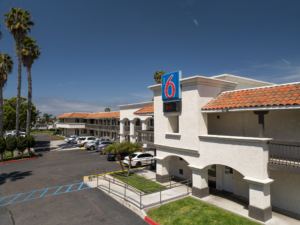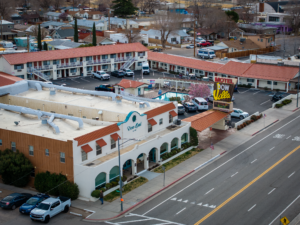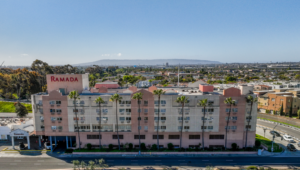S.F. hotels have 83 million new reasons to sell to Project Homekey
S.F. hotels have 83 million new reasons to sell to Project Homekey
A recent shift in federal policy has freed up $83 million in local funding for a state program meant to convert hotels into permanent housing, sweetening the pot for struggling hotel owners to flip their properties at alluring above-market rates.
Last summer, Gov. Gavin Newsom launched Project Homekey, incentivizing hotel owners to sell their properties to local governments that would then convert them into permanent housing shelters at a fraction of the cost of new construction. The project drew dozens of interested sellers in San Francisco and turned the California hotel sale market into a national outlier — the only place where sales increased significantly amid the horrendous pandemic market.
Now extra funds are at the city’s disposal to potentially buy more hotels.
In January, the Biden administration announced it would reimburse city governments through the Federal Emergency Management Agency for 100% of the costs related to shelter-in-place hotels, covering January 2020 through October of this year.
Because San Francisco had been shouldering these costs with the expectation of a 75% FEMA reimbursement under the Trump administration, the policy change freed up $83 million of general fund money that the city could use to acquire more properties.
“One time money has to be spent once,” said Supervisor Aaron Peskin, who represents District 3, where the city’s two current Homekey hotel purchases are located. “There are opportunities to reduce ongoing operational costs, particularly leasing costs and rent, with purchases of real property. I think if everybody comes together, there’s an opportunity to spend our short-term gains on long-term savings.”
But at least 70 tourist hotel owners in San Francisco have signaled their interest in selling their buildings through Project Homekey in response to requests for information the city sent out last summer and again in December.
Alan Reay, president of Atlas Hospitality Group, surmised that the number of interested sellers could be even higher.
“I think a lot of owners are still willing to sell to Project Homekey as they see the price being paid at the higher end of the range (some would say above market),” Reay said in an email.
A Homekey transaction is also a lot less complicated than the typical hotel sale, which involves transferring a host of connected service and supply agreements.
“Homekey is purchasing the real estate but not the business,” Reay added. “The only thing they’re switching over is the utilities.”
At a rough average cost of about $200,000 per room, the freed FEMA funds would support the purchase of an additional 400 rooms, more than double San Francisco’s Homekey room count to date.
The hotels inclined toward Project Homekey are typically geared toward the budget tourist market, rather than historic hotels in prime locations such as the recent sale of the Sir Francis Drake. At the same time, Hotel Diva’s proximity to Union Square at 440 Geary St. didn’t stop its owner from selling.
Additionally, the median unit price for Homekey deals throughout California was $139,423, 24% higher than the median unit price of total statewide hotel sales.
All told, Project Homekey accounted for $890 million in hotel sales, the vast majority of them closing in the last month of 2020 ahead of a funding deadline. Without the program, the number of statewide hotel sales would have been 26% less and total dollar volume would have declined by 61% on the year, the report said.
Community groups have backed the program and urged city officials to use its freed-up FEMA funding to support affordable housing, in particular by acquiring more hotels. On Wednesday, members of more than 50 homeless advocacy organizations in San Francisco held a press conference calling for city hotel purchases as the quickest and most cost-effective remedy for the region’s housing and homelessness crisis.
The average per unit cost of converting an existing hotel studio to housing, including an ensuite bath and kitchen, is about $300,000, compared with the $600,000 price tag for new construction of the same suite, according to the San Francisco Housing Accelerator Fund, a public-private partnership that facilitates affordable housing purchases.
“It’s one-time money so better to use for one-time uses,” said Jennifer Friedenbach, executive director of the Coalition on Homelessness.
She suggested that shelter-in-place hotel operating expenses, another potential avenue for the freed-up funds, were more suitably covered by programs such as federal choice vouchers, or funding from Proposition C, a 2018 local measure that supports homeless and housing services.
If city officials concur, that could mean more money on the books ready to scoop up hotel properties — and for out-of-luck hotel operators, an above-market ejector seat from this crisis.



